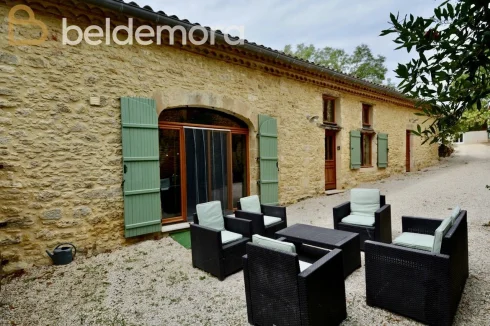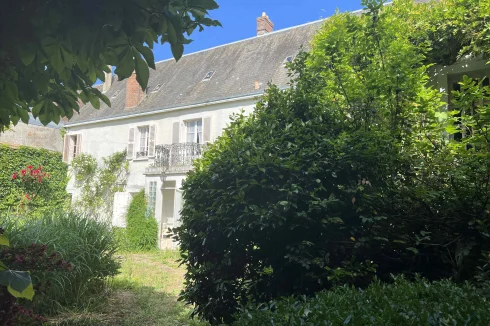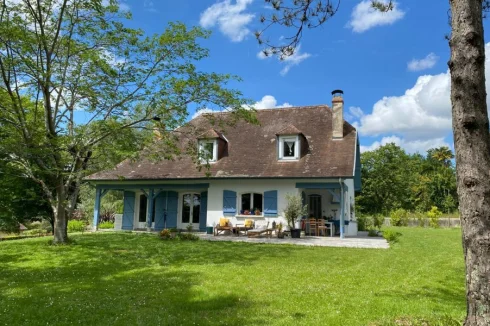Permits for Letting Furnished Property in France
Tuesday 02 June 2015
Second home owners who let out short-term furnished accommodation in France are required to complete certain administrative formalities.
In recent years the growth in the number of second home owners letting out their property for short-term use has prompted the French authorities to introduce a greater degree of regulation over the sector.
In part this has been in response to lobbying from the hotel industry, whose market is clearly threatened by this competition, but also by the impact of such lettings on the availability of rental accommodation on a permanent basis.
This has notably been the case in Paris, where no less than around a quarter of all rental properties in the city are for short-term use, consequently driving up the rents of those remaining properties that are available for all-year round letting.
Applicable Properties
Those properties to whom the formalities apply are called 'meublé de tourisme', which are defined in law as "un local meublé destiné à l'habitation de manière répétée pour de courtes durées à une clientèle de passage qui n'y élit pas domicile".
That is to say, furnished accommodation used for short lets on a regular basis to visiting customers who do not use it as their main home. There is no requirement that the property has a rating classification or label.
The definition, therefore, specifically excludes those who occupy the property as their main home.
Likewise if the property is the main home of the owner, the lettings do not come within the scope of the regulatory structure, although separate regulations require that if it is a chambre d’hôte a declaration to the local mairie is necessary.
The expression 'manière répétée' does potentially exclude from the scope of the legislation gîtes that may only be let out to several customers for a few weeks in the summer.
The regulations that govern the imposition of local taxes on residential properties certainly distinguishes between 'gîtes ruraux' and 'meublés de tourisme', so it is quite possible that a gîte owner would be required to do no more that declare the property to the local council.
It is certainly true to say that the target of the legislators are those who let out property on a daily or weekly basis to passing trade in the main cities, in direct competition with the hotel industry.
Much will depend on the attitude of the local council as the law is silent on the definition of a gîte.
Declaration or Authorisation?
The administrative formalities required by landlords will depend on the area in which the property is located. In most cases you need do no more than notify the local mairie, but in larger urban areas it is sometimes necessary to obtain specific prior authorisation.
- i. Declaration of Letting
If your property does come within the scope of the regulations then you are required to make a déclaration préalable to the council.
The form merely requires details of the owner, the property and anticipated letting periods. No specific authorisation is required and it only need be made once.
You may well then find that the local council or the tourist office will include the property amongst the list of holiday lettings that it has available for consultation by visitors, which it also uses to send to those enquiring about holiday lettings in the commune. So there is some promotional benefit in compliance.
One other benefit is that there can then be few arguments from the tax office to deny you entitlement to the 71% tax allowance on rental income for a 'gîte rural', as opposed to the 50% allowance granted on standard furnished lettings.
- ii. Demand for Authorisation
In certain urban conurbations the prior authorisation of the local mairie is required, by submission of a demande d'autorisation préalable de changement d'usage.
What the law is effectively saying in these circumstances is that the use of the property for commercial letting purposes constitutes a change of use, which requires that planning consent be obtained.
Those areas in which this requirement is necessary are:
- Paris
- Departments of Hauts-de-Seine, Seine-Saint-Denis and Val-de-Marne
- Communes with a population greater than 200,000 inhabitants
You may also be required to seek permission in urban areas with a population greater than 50,000 inhabitants, but only where the local council (or inter-communal body) has made it a specific requirement to do so. In other words, in such areas it is a discretionary power granted to the councils.
In Paris the council is taking an increasingly tough stand on the change of use to short-term lets. Few authorisations are being granted and where it occurs the law grants the council the power to oblige a landlord to compensate the loss of a permanent home by the change of use of a non-residential property in the same arrondissement to residential use.
The obligation to provide such compensation is widely ignored by landlords in Paris, but the council have recruited inspection staff to control abuse, and last year around 20 landlords who were operating without authorisation were given heavy fines. Several hundred other cases are under consideration. Infringement of the law is subject to a fine of up to €25,000.
Temporary Authorisation
Within those areas where an autorisation préalable is necessary a recent change in the law grants the councils power to authorise temporary use (autorisation préalable temporaire) of an existing residential property for short-term lettings, without the need to provide compensation.
It is a power that is likely to be of only limited application in Paris, due to the position the council has adopted, but may have wider use elsewhere.
Thank you for showing an interest in our News section.
Our News section is no longer being published although our catalogue of articles remains in place.
If you found our News useful, please have a look at France Insider, our subscription based News service with in-depth analysis, or our authoritative Guides to France.
If you require advice and assistance with the purchase of French property and moving to France, then take a look at the France Insider Property Clinic.





